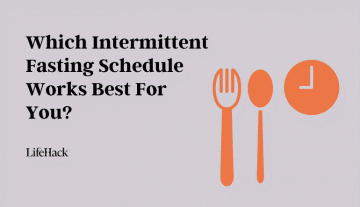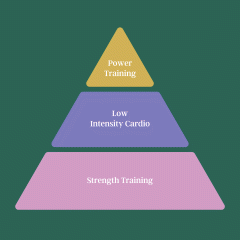If you have so many things to do that you often find yourself struggling to finish projects and tasks and move on to other stuff, you’re certainly not alone. Studies show that over 20 percent of the adult population put off or avoid doing certain tasks by allowing themselves to be overtaken by distractions.
So what is procrastination? And what can you do to prevent procrastination?
In this article, I am going to explain to you why procrastination is so difficult to beat and how you can stop procrastinating and manage time better by following a step-by-step guide. But first, you need to understand how procrastination happens.
What Is Procrastination?
Piers Steel, the author of the book The Procrastination Equation: How to Stop Putting Things Off and Start Getting Stuff Done, defines procrastination in this way:
“Procrastination is to voluntarily delay an intended course of action despite expecting to be worse off for the delay.”
In other words, procrastination is doing more pleasurable things in place of less pleasurable ones. The end result is that important tasks are put off to a later time.
This comic is one of the typical examples of procrastination:
Signs of a Procrastinator
Procrastinators don’t want to complete their works because they tend to feel overwhelmed easily and lack focus when they work.
If you’re wondering whether you’re a chronic procrastinator, take a look at these signs of a procrastinator and find out: 30 Signs You’re Actually A Procrastinator
Why Do We Procrastinate?
The reasons vary from person to person. It could be a matter of emotion, which affects your motivation. It could also be something related to your ability to focus, and the way you deal with your fears.
Learn about the reasons in these articles:
Is Procrastination Bad?
Yes, it is. Procrastination is bad. It drags your progress and make you unable to get anything done. If you procrastinate, you will lose your precious time and blow opportunities.
Take a look at the consequences of procrastination here: 8 Dreadful Effects of Procrastination That Can Destroy Your Life
The Challenge of Getting Over Procrastination
Human beings have limited self-control. Dr. Roy Baumeister, a psychologist from Florida State University, has been studying self-control and he has found that just like any muscles, human’s self-control is a limited resource that can quickly become exhausted. When self-control is close to being depleted, human tend to choose what’s more pleasurable– the immediate procrastinated tasks instead of the actual works.
At its core, procrastination is an avoidance strategy. Procrastinators choose to do something else instead of doing what they need to do because it’s much easier to choose pleasure over pain.
In short, procrastination is so difficult to beat because it is a battle against human’s natural enemy, a human weakness that is in-born.
The common symptoms of procrastination are lack of vision, lack of time and lack of organisation. Check them out here: 7 Symptoms of Procrastination and How to Fight Them
How to Stop Procrastinating (Step-By-Step Guide)
Despite the fact that it’s human nature to seek for immediate rewards and procrastinate, here I have a step-by-step guide for you to follow so as to break the procrastination cycle.
1. Identify Your Triggers: The 5 Types of Procrastinator
Identifying the type of procrastination you personally experience is an essential step for you to fix the problem at its root.
Take a look at this flowchart here to find out what type of procrastinator you are:
Which type of procrastinator are you? Let’s take a look at the triggers for your procrastination type:
PerfectionistBeing perfect is the pleasure perfectionists want. But often this leads to them being too scared to show any imperfections. Because of this, they frequently fail to complete things, as they’re forever seeking the perfect timing or approach. Tasks end up never being completed, because in the eyes of the perfectionist, things are never perfect enough.
Instead of finishing something, perfectionists get caught up in a never-ending cycle of additions, edits, and deletions.
OstrichAn ostrich prefers to stay in the dreaming stage. That way, they don’t have to work for real, or deal with any negativity or stress.
Dreaming gives this type of people a false sense of achievement, as in their minds, they envision big, ambitious plans. Unfortunately for them, these plans will most likely stay as dreams, and they’ll never accomplish anything truly worthwhile.
Self-SaboteurA self-saboteur has bought into the line that ‘by doing nothing, bad things won’t happen.’
In reality, self-saboteurs have developed a fear of making mistakes or doing anything wrong. Their way to avoid these mishaps, is to do nothing at all. In the end, they may make few mistakes – but they also see few accomplishments.
DaredevilDaredevils are those who believe that deadlines can push them to do better. Instead of having a schedule to complete their work – they prefer to enjoy time doing their own thing before the deadline comes around.
It’s most likely an unconscious thing, but daredevils evidently believe that starting early will sacrifice their time for pleasure. This is reinforced in their minds and feelings, by the many times they manage to get away with burning the midnight oil. Often they sacrifice the quality of their work because of rushing it.
ChickenChickens lack the ability to prioritize their work. They do what they feel like they should do, rather than thinking through what they really need to do.
Prioritizing tasks is a step that takes extra time, so chicken will feel it’s not worth it. Because of this, they usually end up doing a lot of effortless tasks that don’t contribute much to a project. They’re incessantly busy on low-impact tasks, but seem oblivious to urgent, high-impact tasks.
Learn more about the 5 types of procrastinators here: Types of Procrastination (And How To Fix Procrastination And Start Doing)
2. Face Your Triggers and Get Rid of Them
Whether it’s fear of failure, overwhelming feelings, avoidance or convincing yourself you’re just too busy to get something done, you can improve your ability to be productive by eliminating your procrastination triggers.
For Perfectionists, Re-Clarify Your GoalsMuch of the time procrastination tendencies form simply because we’ve outgrown our goals. We’re ever-changing and so are our wants in life. Try looking over your goals and ask yourself if they’re still what you want.
Take time out to regroup and ask yourself what you really want to achieve:
What steps do you need to take? Is what you’re currently doing reflecting what you want? What do you need to change?Write things down, scribble them out and rewrite.
For Ostriches, Do the Difficult Tasks FirstEven if you feel you’re not a morning person, the beginning of the day is when your brain is most productive. Use this window of time to get the more difficult stuff done.
If you leave your difficult tasks to later, you’re much more likely to put it off because you’re tired and lack motivation.
Finishing lots of simple tasks at the beginning of the day such as reading all the new emails only gives you a false sense of being productive.
For Self-Saboteurs, Write out a To-Do (And a Not–To-Do) List Each DayWriting things down is powerful and psychologically increases your need to get things done.
Each day, make a habit of creating a list of the tasks you know you’ll try and avoid. By doing this, it brings these ‘difficult’ tasks to your mind’s attention instead of keeping them locked away somewhere in your avoidance mode.
Remember, think how satisfying and productive it feels to cross of a completed task.
For Daredevils, Create a Timeline with DeadlinesIt’s common to have a deadline for a goal which seems like a good idea. But this is basically an open invitation for procrastination.
If it’s a self-created deadline with no pressure, we tend to justify pushing it back each time it comes into sight and feel we haven’t yet done ‘enough’ to get there.
Create a bigger timeline then within that, establish deadlines along the way. The beauty of this comes when each deadline completion is dependent on the next. It keeps you on track and keeps you accountable for being in alignment with the overall timeline.
For Chickens, Break Tasks into Bite-Sized PiecesA lot of the time procrastination comes from overwhelming thoughts.
If something feels too big to tackle and we don’t know where to start, it feels like a struggle. This is also true if our goal is too vague and lacking direction.
Break down larger tasks into smaller ones and turn them into daily or weekly goals. Smaller steps may seem like the slower approach to achieving a goal, but it often leads you much more quickly to where you want to be due to the powerful momentum you get going.
3. Form a Ritual
By forming a ritual, you save yourself time from thinking about what to do next. When you don’t need to think about what to do next, you can go autopilot to actually get what you have to do done because you have no time to think about what other things to do besides completing your important tasks.
Here’s how to form a ritual and beat procrastination: The Power of Ritual: Conquer Procrastination, Time Wasters and Laziness
4. Take Planned Breaks
The human brain isn’t designed to work continuously on the same task and this could be a reason for procrastination.
Make sure you take regular, structured breaks away from your task so that you can come back refreshed and ready to be more productive.
A break as short as 5 minutes is enough to keep your mind sharp and wards off fatigue. I recommend you to use the Pomodoro Time Tracker. It is a great tool to help you take breaks at set intervals. Simply start the 25-minute timer, and follow the prompts.

5. Reward Yourself
It’s important to acknowledge and reward yourself for achieving even the small tasks. It creates a sense of motivation and releases those feel-good, productive emotions that spur you on to achieve even more.
Make your reward proportional to the task you completed so getting a bite-sized task done gets you a cup of your favourite coffee or snack. Then plan a weekend away or fun activity for the bigger stuff.
Personally I try to make staying focus more fun by using the app Forest. It turns productivity into a game. In the game, you can plant a virtual tree at the beginning of your work time. If you maintain focus for the duration of the timer, you’ll grow a tree to add to your forest. It’s rewarding when you can eventually grow a forest.

6. Keep Track of Your Time in a Smart Way
If you want to prevent the bad habit of procrastination from coming back, keep track of the time you spend every day.
By having a clear idea of where you spend your time, you can always review your productivity and know which areas to improve.
It’s not easy to keep track of every minute you spend throughout the day so I recommend you to use the app Rescue Time.
It gets you a categorized breakdown of how you spend your time and helps you to find out how much time you’re really on-task. You can even label activities as productive and non-productive so as to block your biggest distractions.

Here’re 5 extra strategies to help you stop procrastinating:
The Bottom Line
Procrastination exists for many reasons and only you know for yourself what these triggers are.
Understanding what procrastination really is and the source of your avoidance tendencies is important in moving them out of the way and help you start the productivity momentum.
Make procrastination under your control!





























































